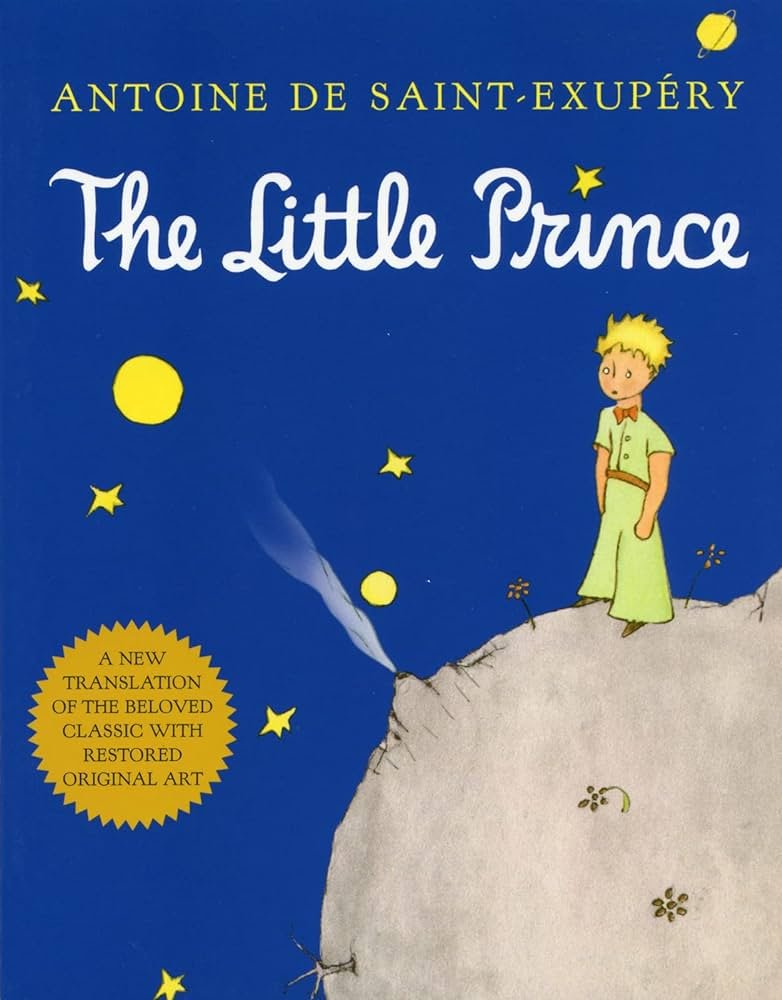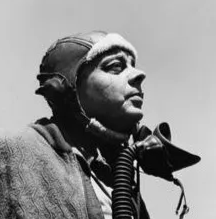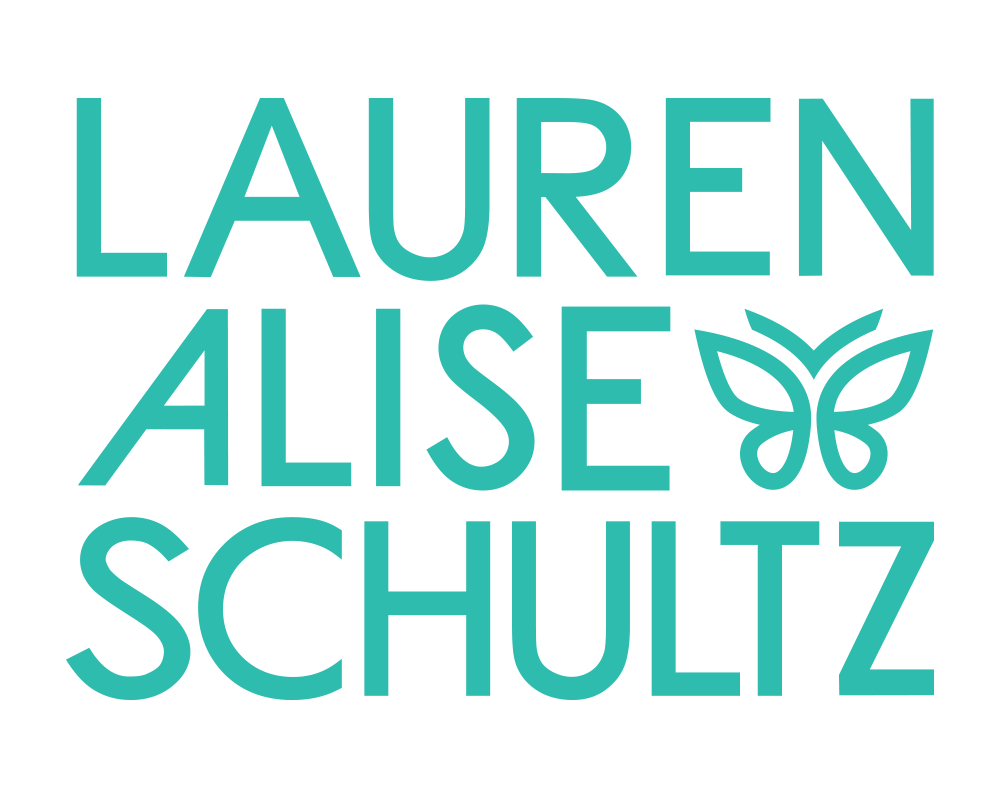I first discovered Antoine de Saint-Exupéry’s The Little Prince when I was well into my twenties. At first, I wished that I had read this story when I was a child. Now though, I wonder if I don’t appreciate the wisdom that abounds in this whimsical little novella all the more for having discovered it only once I was able to think more deeply about what all de Saint-Exupery might have meant.
The novella is first of all a fantasy story about a little boy who lovingly cares for his tiny home planet, with its two active volcanoes, one inactive volcano, and a single rose plant. The little prince is careful to water and shelter the rose and uproot any baobab plants that threaten to take root. But when the rose hurts his feelings, our prince leaves his little planet and begins to explore the other planets in this vast universe. de Saint-Exupery relates all of this with such heart-warming whimsy that this novel never fails to make me smile.
But The Little Prince is not simply a fanciful nonsense tale, but a scathing indictment of “grown-ups” who have lost the ability to understand the truly important things in life. Even before the little prince departs on his journey around the universe and encounters various foolish men engaged in absurd activities and pursuits, the narrator offers his own commentary on grown-ups’ inability to understand anything but numbers and money. He tells his audience, “That’s the way they are [but] you must not hold it against them. Children should be very understanding of grown-ups. But, of course, those of us who understand life couldn’t care less about numbers!”
When our little prince travels from planet to neighboring planet, he finds many different types of men, and most all of them are engaged in “serious” activities of the grown-up world that are revealed as absurd when seen through the lucid eyes of a child. Why spend all day counting things? Making maps when you haven’t seen the world? Trying to rule, reign, or own something when you cannot enjoy it? The commentary of modern society that underlies this fantasy story is written with such wit and wisdom that you cannot help but begin to see our accountants, geographers, presidents, and kings in a new light. How foolish is any man who only seeks to increase his knowledge and his power, without taking the time to enjoy his own little kingdom!
Despite the many foolish men that he encounters, the little prince does make two worthy friends on his journey – a fox who teaches him the meaning of love, and the narrator, a pilot who is stranded in the desert. (Fun fact: the author Antoine de Saint-Exupéry was a French aviator who served in WWII.) It is with the pilot that the little prince shares the story of his travels and what he has learned. The prince explains to the pilot that he loved the rose all along, despite her vanity:
“My rose, all on her own, is more important than all of you together, since she’s the one I’ve watered. Since she’s the one I put under glass. Since she’s the one I sheltered behind a screen. Since she’s the one for whom I killed the caterpillars (except the two or three for butterflies). Since she’s the one I listened to when she complained, or when she boasted, or even sometimes when she said nothing at all. Since she’s my rose” (63).
I know that as I try to compose a review of this particular little book, I am summarizing more than evaluating or analyzing. But the truth is that I am struggling to put in to words exactly why this book is wonderful without quoting passage after passage. It is simply the way that the simple but beautiful prose comments on both the state of modern life and the universal experience of death that make this book such a magical piece of literature.
If you want more of an analysis of The Little Prince, there is an interesting book called Twayne’s Masterwork Series: A Little Prince, A Reverie of Substance by James E Higgins that provides information on the Historical Context and the “Significance of the Work.”
But when you take a look at the Amazon reviews of Higgins’ book, you find this little gem of a comment:
“Let me point out: The Little Prince is all about how “the grown-ups” fail to see the real meaning in things because they analyze them too much instead of just loving them and seeing them for what they are… [Higgins’] book was written by a grown-up. If you really want to get all that you can from de Saint-Exupery’s The Little Prince, buy the book, read it, read it again, read it again, read it again, think about it, reflect on it, read it again, and if that is not enough, discuss it with some friends over coffee… The Little Prince is a beautiful little book. It is magical. Don’t ruin it; don’t be a grown-up.”
And so although the literary critic and academic in me would like to comment more on the technical aspects of de Saint-Exupery’s novel, I think I will refrain. Miles A. Robinson from Bloomfield, Michigan is right – if I try to write about this book like too much of a grown-up, I will ruin it. Just go read it for yourself.



This website was created with a lot of love, Coke Zero, and tacos by Kumquat Creative.